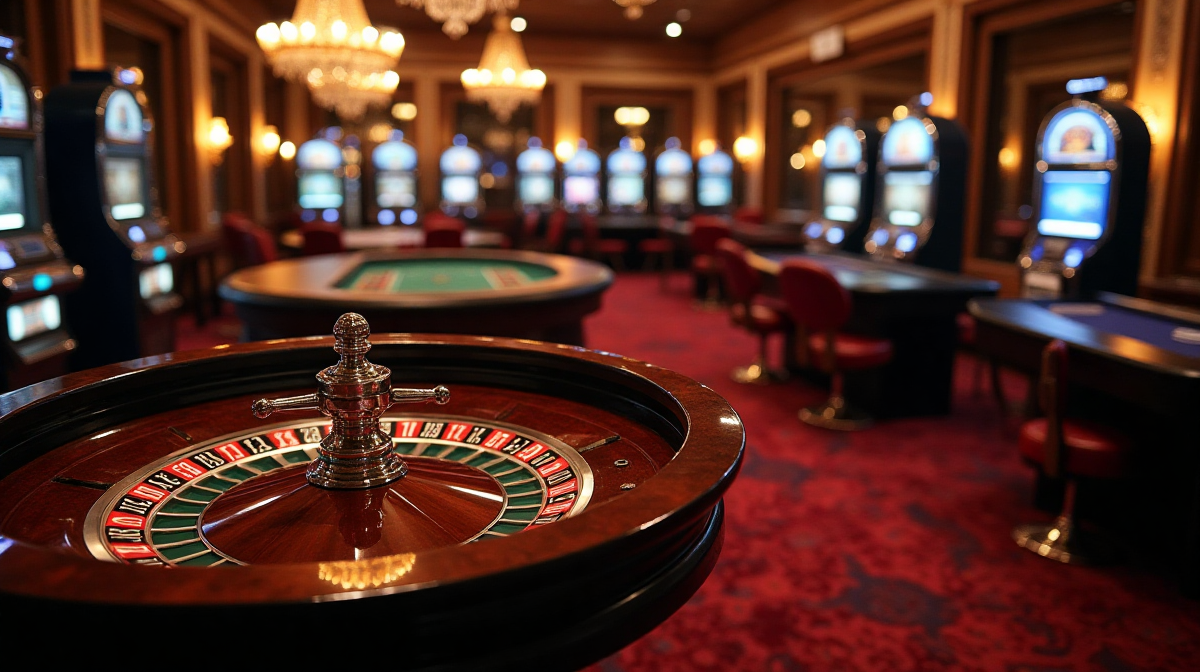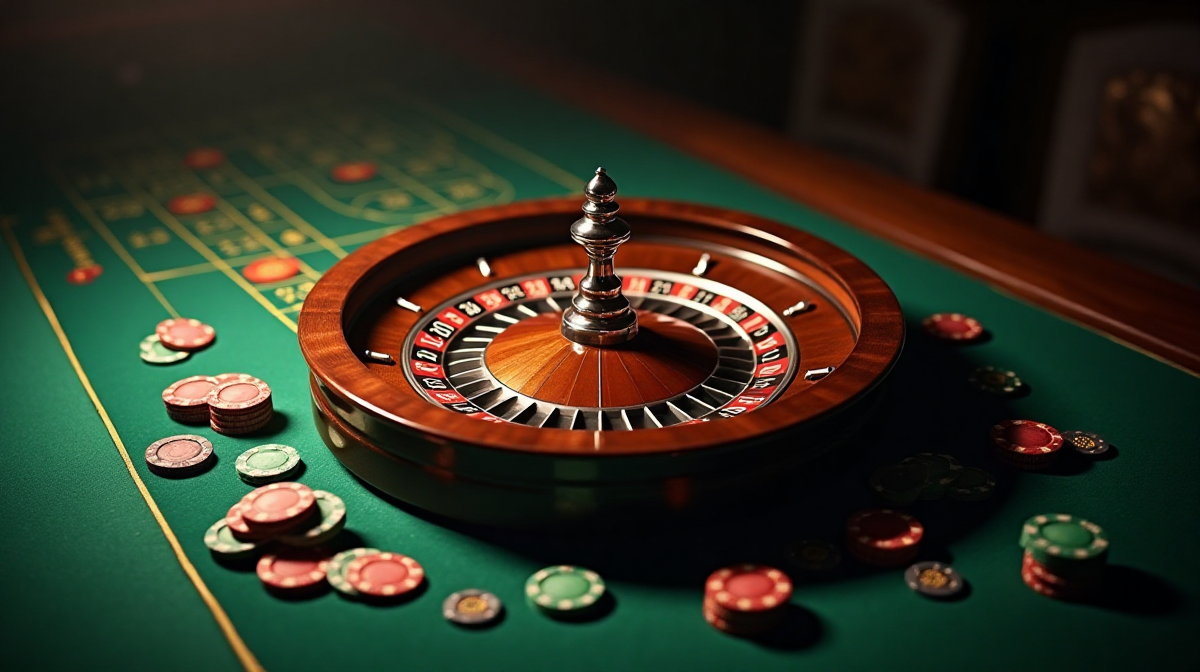Roulette No Way Out? Strategy Guide
Introduction: Understanding the No Way Out Roulette Situation
What is the No Way Out Scenario in Roulette?
The “no way out” scenario in roulette is a terrifying situation for any player – a relentless losing streak where, regardless of the strategy employed, losses continue to mount. It feels like being trapped, with increasing bets failing to recoup previous losses. Players often find themselves chasing losses, a dangerous cycle that can quickly deplete a bankroll. This is a particularly acute issue for those who rely on progressive betting systems. Many are turning to resources like a star bet prediction hoping for a quick turnaround, but relying solely on predictions is rarely a sustainable solution.
Common Causes Leading to this Situation
Several factors contribute to this predicament. A major one is insufficient bankroll for the chosen betting strategy, especially those involving progressive increases. Another is a long run of unfavorable outcomes, statistically possible even in a fair game. Finally, emotional betting – deviating from a pre-defined strategy due to frustration or the desire to win back losses – is a significant contributor. Those looking for a convenient way to play are often drawn to the star bet app download, but the app doesn’t eliminate the inherent risks of the game.
Psychological Impact & Why it's Dangerous
The psychological toll of a prolonged losing streak can be immense. Desperation sets in, leading to irrational decisions and a reluctance to cut losses. The feeling of being “invested” – even though gambling should never be considered an investment – fuels the cycle of chasing losses. This can lead to significant financial hardship and emotional distress.
Is it Actually Beatable? A Realistic Overview.
While technically possible to recover from a no way out situation, it's incredibly difficult and reliant on luck. The house edge consistently works against the player. A realistic approach involves acknowledging the inherent risks and focusing on damage control, rather than believing a guaranteed win is achievable. Understanding how to play roulette strategically is vital, but doesn’t guarantee success. Many are exploring options like a star bet as a potential quick win, but remember, it’s still gambling.
Core Principles: Risk Management & Bankroll Control
The Importance of a Defined Bankroll
Before even placing a bet, establish a dedicated bankroll specifically for roulette. This should be money you can afford to lose without impacting your financial stability. Never gamble with funds earmarked for essential expenses.
Setting Loss Limits – The Hard Stop
Determine a maximum loss limit before you start playing. Once this limit is reached, stop playing, regardless of your emotional state. This is the most crucial aspect of responsible gambling.
Bet Sizing: Avoiding Rapid Depletion
Choose bet sizes that allow you to withstand a significant losing streak. Avoid betting large percentages of your bankroll on single spins. Smaller, more consistent bets are generally safer.
Understanding House Edge & Its Influence
Roulette inherently favors the casino due to the house edge. This means that over the long run, the casino is guaranteed to profit. Recognizing this fact is essential for realistic expectations.
The Role of Discipline and Emotional Control
Discipline is paramount. Stick to your pre-defined strategy and loss limits, even when facing losses. Emotional control prevents impulsive decisions driven by frustration or greed.

Basic Strategies to Mitigate Risk
The Martingale System – Pros, Cons, and Limitations in this Scenario
The Martingale system involves doubling your bet after each loss. While it can theoretically recover losses, it requires a substantial bankroll and is susceptible to reaching the table limit, rendering it ineffective in a prolonged losing streak. It’s a high-risk strategy best avoided when already in a “no way out” situation.
Reverse Martingale – When it Might Be Suitable
The Paroli system involves increasing your bet after each win. It’s less risky than the Martingale, but relies on winning streaks, which are not guaranteed.
D'Alembert System – A More Conservative Approach
The D'Alembert system involves increasing your bet by one unit after a loss and decreasing it by one unit after a win. It’s a more gradual approach than Martingale, but still carries risk.
Fibonacci Sequence – Managing Losses Incrementally
The Fibonacci sequence involves increasing your bet according to the sequence (1, 1, 2, 3, 5, 8…). It’s a moderate-risk strategy that aims to recover losses gradually.
Focusing on Even Money Bets
Even money bets offer the highest probability of winning (almost 50%), though the payout is relatively low. These bets are generally considered less risky than inside bets. Some use star bet prediction services to help with these, but remember, past results are no guarantee of future wins.
Advanced Strategies
The Labouchere System – Building a Targeted Recovery Plan
The Labouchere system involves creating a sequence of numbers and betting the sum of the first and last numbers in the sequence. It’s a complex system that requires careful planning.
The James Bond Strategy – Combining Multiple Bets
The James Bond strategy involves placing bets on multiple numbers to cover a significant portion of the wheel. It’s a higher-cost strategy with a moderate risk.
Modified Martingale – Adapting the System for Limited Bankroll
Adjusting the doubling amount in the Martingale system can help mitigate risk with a smaller bankroll, but it also slows down potential recovery.
Understanding Bet Coverage and Probability
Different bets offer varying levels of coverage and probability. Understanding these relationships is crucial for making informed decisions.
When NOT to Employ Advanced Strategies.
Avoid employing advanced strategies when already in a significant losing streak. Stick to simpler, lower-risk approaches or consider stopping altogether.
Recognizing When to Cut Your Losses
Identifying the Point of No Return
The point of no return is when your losses have significantly depleted your bankroll, and continuing to play will likely lead to complete depletion.
The Importance of Accepting Defeat
Accepting defeat is a sign of discipline and responsible gambling. Don't let ego or the desire to win back losses cloud your judgment.
Knowing When a Strategy is No Longer Working
If your chosen strategy consistently fails to produce positive results, it’s time to re-evaluate or abandon it.
Avoiding the Gambler's Fallacy
The gambler's fallacy is the belief that past events influence future outcomes in a random game. Each spin of the roulette wheel is independent of previous spins.
Detaching Emotion from the Game.
Maintain a detached emotional state. Don’t let wins or losses dictate your decisions.
Tactical Adjustments During a No Way Out Situation
Switching to Lower-Risk Bets Temporarily
Shift your focus to even money bets to reduce potential losses.
Reducing Bet Sizes Significantly
Drastically reduce your bet sizes to prolong your bankroll.
Taking Breaks to Regain Perspective
Step away from the game to clear your head and regain emotional control.
Analyzing Past Results
Review your past results to identify patterns, but avoid falling into the gambler's fallacy.
Considering a Complete Stop and Return Later.
The most prudent course of action is often to stop playing and return another day with a fresh perspective and a replenished bankroll.

Tools and Resources for Responsible Roulette Play
Bankroll Management Trackers & Apps
Utilize apps or spreadsheets to track your bets, losses, and wins.
Online Roulette Simulators for Practice
Practice different strategies in a risk-free environment using online roulette simulators.
Resources for Gambling Addiction Support
Seek help from organizations dedicated to gambling addiction if you’re struggling to control your gambling habits.
Understanding Casino Bonuses and Wagering Requirements.
Carefully read the terms and conditions of any casino bonuses before accepting them. Wagering requirements can significantly impact your ability to withdraw winnings.
Case Studies: Analyzing Real-Life Scenarios
Example 1: A Martingale Failure – What Went Wrong?
A player attempted to use the Martingale system with a small bankroll, quickly reaching the table limit and losing everything. The lack of sufficient funds was the primary cause of failure.
Example 2: Successful Recovery Using the Labouchere System
A player used the Labouchere system to strategically recover losses over a series of spins, demonstrating the potential of a well-planned strategy.
Example 3: Knowing When to Walk Away – A Learning Experience.
A player reached their pre-defined loss limit and stopped playing, avoiding further losses. This demonstrated the importance of discipline and responsible gambling.
Conclusion: Staying Safe and Playing Smart
Recap of Key Takeaways
The “no way out” scenario is a challenging situation that requires discipline, risk management, and emotional control. A defined bankroll, loss limits, and strategic bet sizing are essential for mitigating risk. Many look for an easy win with a star bet app download or a star bet prediction, but these are not foolproof solutions.
Emphasizing Responsible Gambling Practices
Remember to gamble responsibly and within your means. Treat roulette as a form of entertainment, not a source of income. Understanding how to play roulette is important, but responsible play is even more so.
Final Thoughts on the No Way Out Scenario.
While the “no way out” scenario can be frightening, it’s not insurmountable. By prioritizing risk management and responsible gambling practices, you can minimize your potential losses and enjoy the game safely. Don’t fall for the illusion of a guaranteed win.

